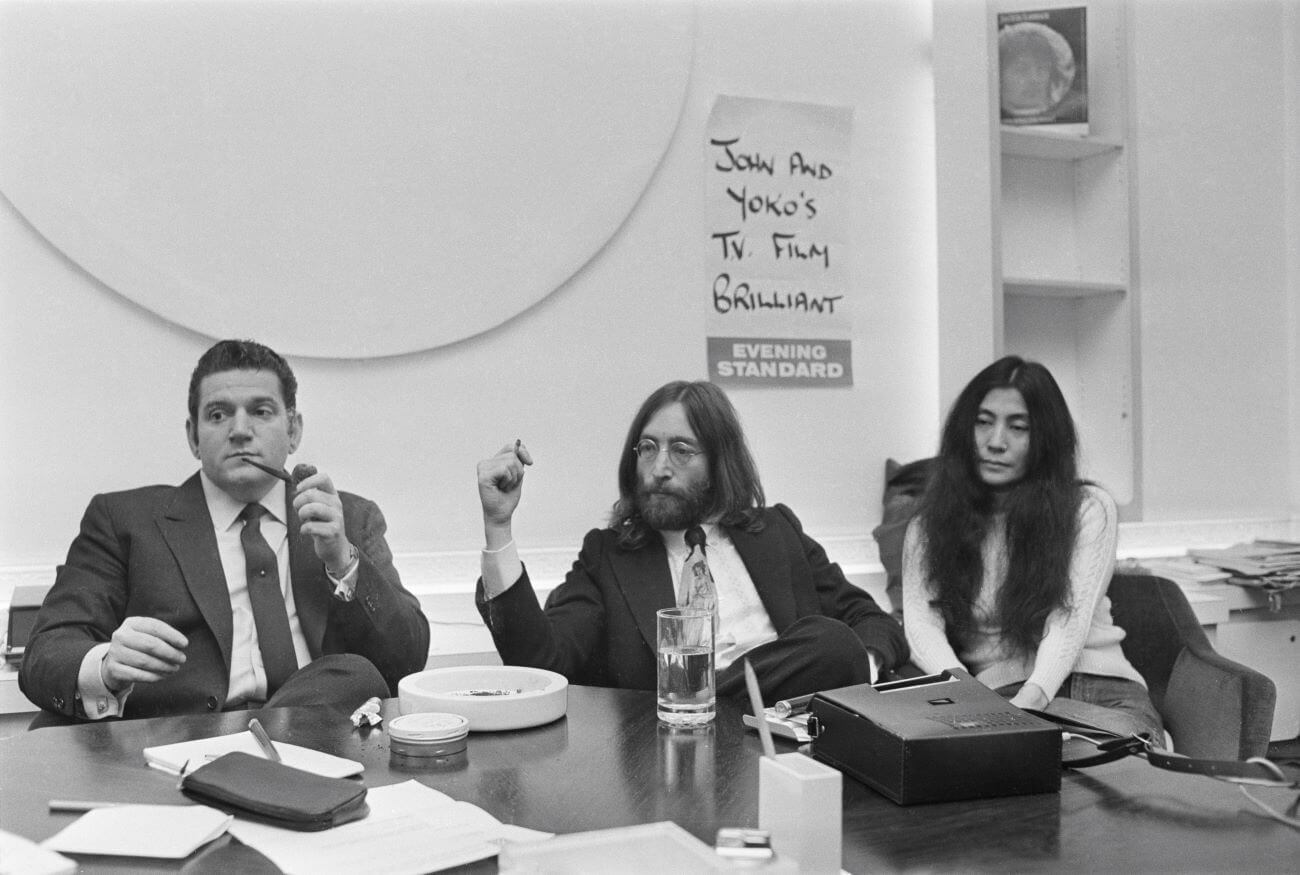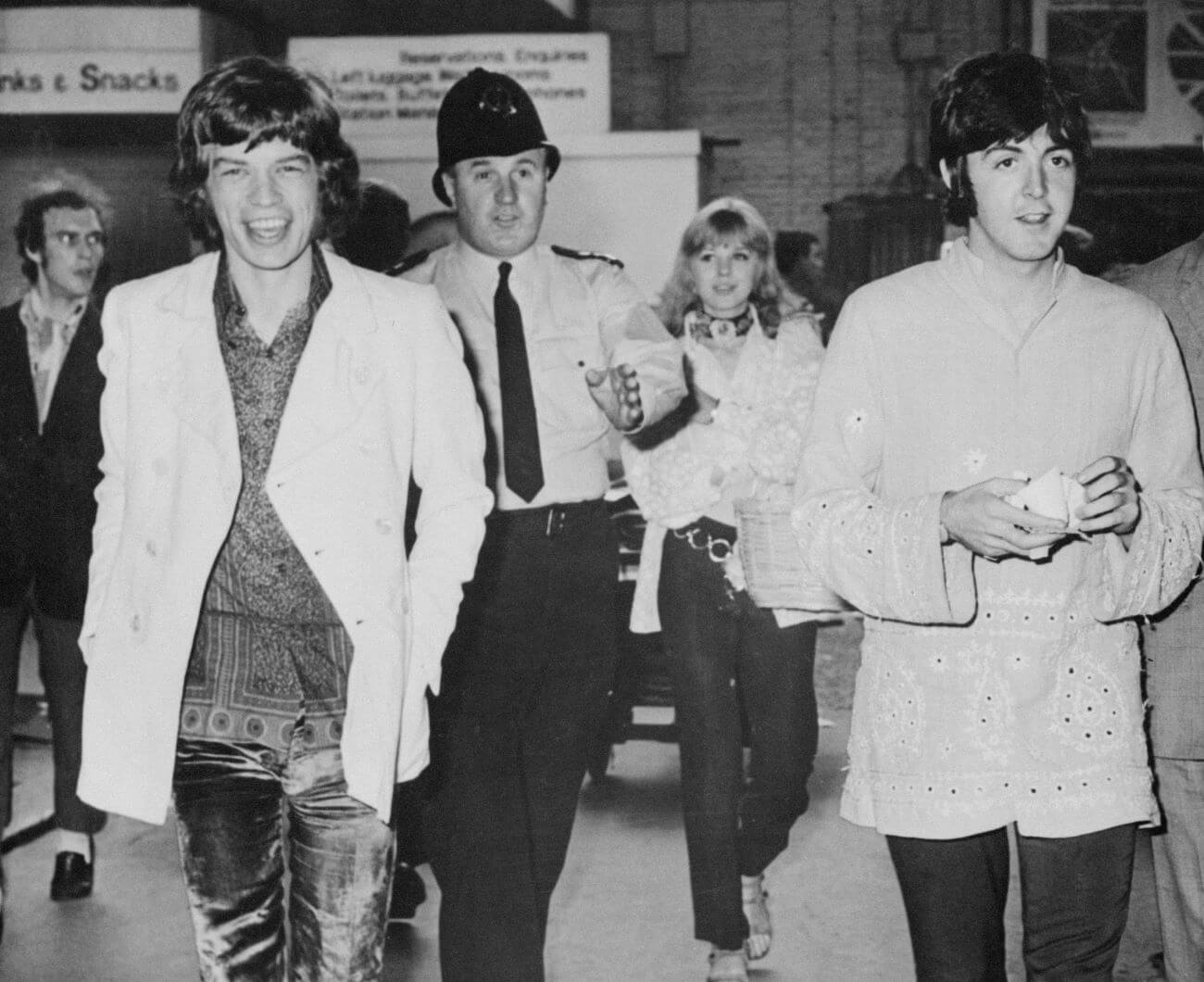
Mick Jagger Sent Paul McCartney a Note Warning Him of the Danger of Hiring Allen Klein
When Mick Jagger heard The Beatles were hiring Allen Klein, he sent a note to Paul McCartney. The Rolling Stones were working with the controversial manager, and Jagger wasn’t sure it was a good idea for The Beatles to hire him. When McCartney asked Jagger to speak to the rest of the band about this, though, he backed down.
Mick Jagger tried to warn Paul McCartney against hiring Allen Klein
After Beatles manager Brian Epstein died, the band was on the lookout for new management. The decision came down to one between Klein — who John Lennon, George Harrison, and Ringo Starr supported — and Lee Eastman, McCartney’s pick. Eastman was McCartney’s father-in-law, which the others didn’t like. McCartney, though, had heard that Klein had landed in hot water over taxes. The note from Jagger was also cause for concern.
“Jagger gave me a note in an envelope to take over to Apple addressed to Paul,” Jagger’s assistant Peter Swales said, per the book Paul McCartney: Many Years From Now by Barry Miles. “It was a warning, maybe in solidarity with him. It was to the effect of ‘Don’t go near him, he’s a dog. He’s a crook.’”

When McCartney asked Jagger to relay this information to the rest of the band, though, he backed down.
“I called Mick Jagger and asked if he’d come round to Apple,” McCartney said. “We, the Beatles, were all gathered in the big boardroom there, and we asked Mick how Klein was, and he said, ‘Well, he’s all right if you like that kind of thing.’ He didn’t say, ‘He’s a robber,’ even though Klein had already taken all the ‘Hot Rocks’ copyrights off them by that time.”
The Beatles would have also had problems if they had appointed Lee Eastman
Ultimately, McCartney lost out to the wishes of his bandmates, and they hired Klein. It was a decision that they all eventually came to regret. McCartney sued the group for control over their work, and Lennon, Harrison, and Starr endured a lengthy legal battle with Klein in the early 1970s. Still, if the band had appointed Eastman, they likely still would have had problems.
Even if Eastman was the perfect manager for The Beatles, they would not have been able to move past his position as McCartney’s father-in-law. After working together for years, the bandmates were competitive; Lennon and McCartney, in particular, battled over who would get more hits.
Lennon, Harrison, and Starr all felt that McCartney was exercising too much control over the group. If his father-in-law was the manager, they would think he was getting unfair treatment. McCartney, to his credit, recognized this.
“[Eastman] would have been good businesswise, but of course, he had too much of a vested interest,” he said. “He would have looked after me more than the others, so I understand their reluctance to get involved with that. And this is how Klein became Mr. X.”
Mick Jagger and Paul McCartney’s concerns were proven to be correct
Both Jagger and McCartney’s concerns about Klein were justified. In 1971, The Rolling Stones replaced Klein. The following year, they sued him over publishing rights in the United States. Still, they couldn’t fully break ties with him due to their contract, and they maintained a contentious relationship with him for years to come.
The Beatles went through a similar experience. After they broke up — due in part to fighting over business affairs — McCartney sued the band. A judge ruled in McCartney’s favor, so Klein began working on the other Beatles’ solo careers.

After problems with the Concert for Bangladesh, though, Harrison grew disenchanted with him. Lennon and Starr followed closely behind. After lengthy legal battles, they also cut ties with him.
“There are many reasons why we finally gave him the push, although I don’t want to go into the details of it,” Lennon said in 1973, per the book The Beatles Diaries Volume 2: After the Breakup. “Let’s say possibly Paul’s suspicions were right … and the time was right.”


